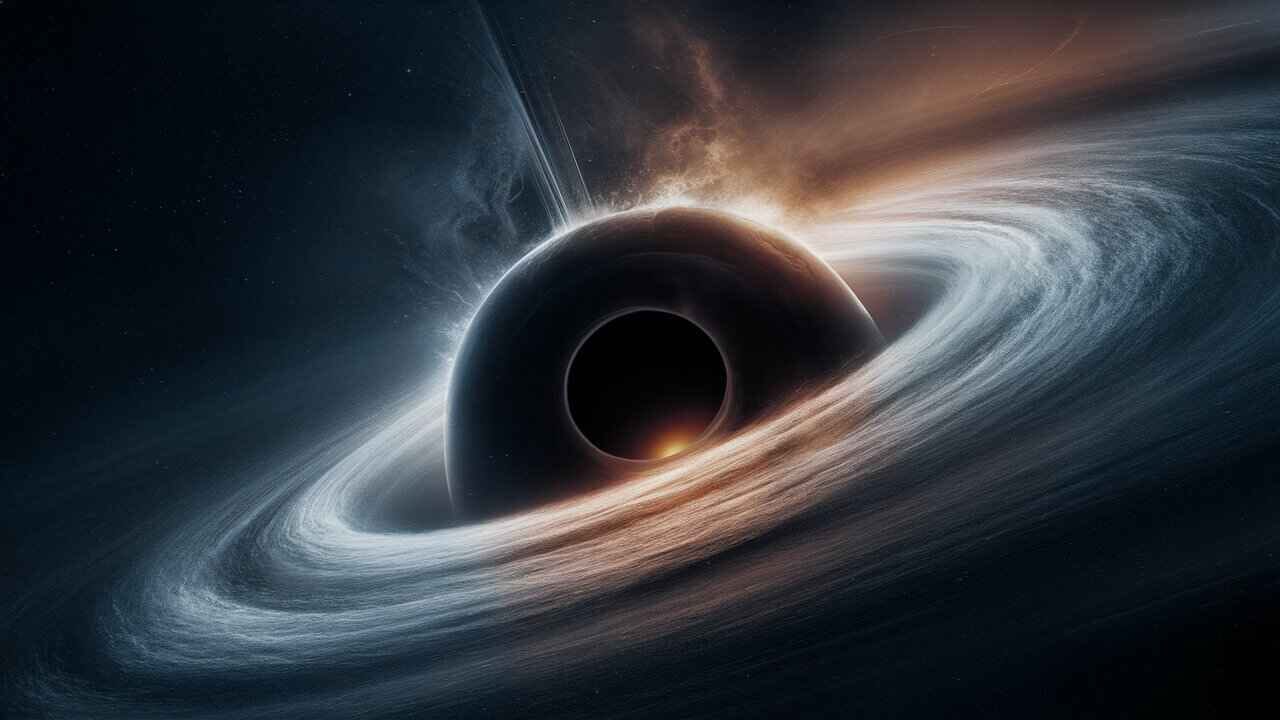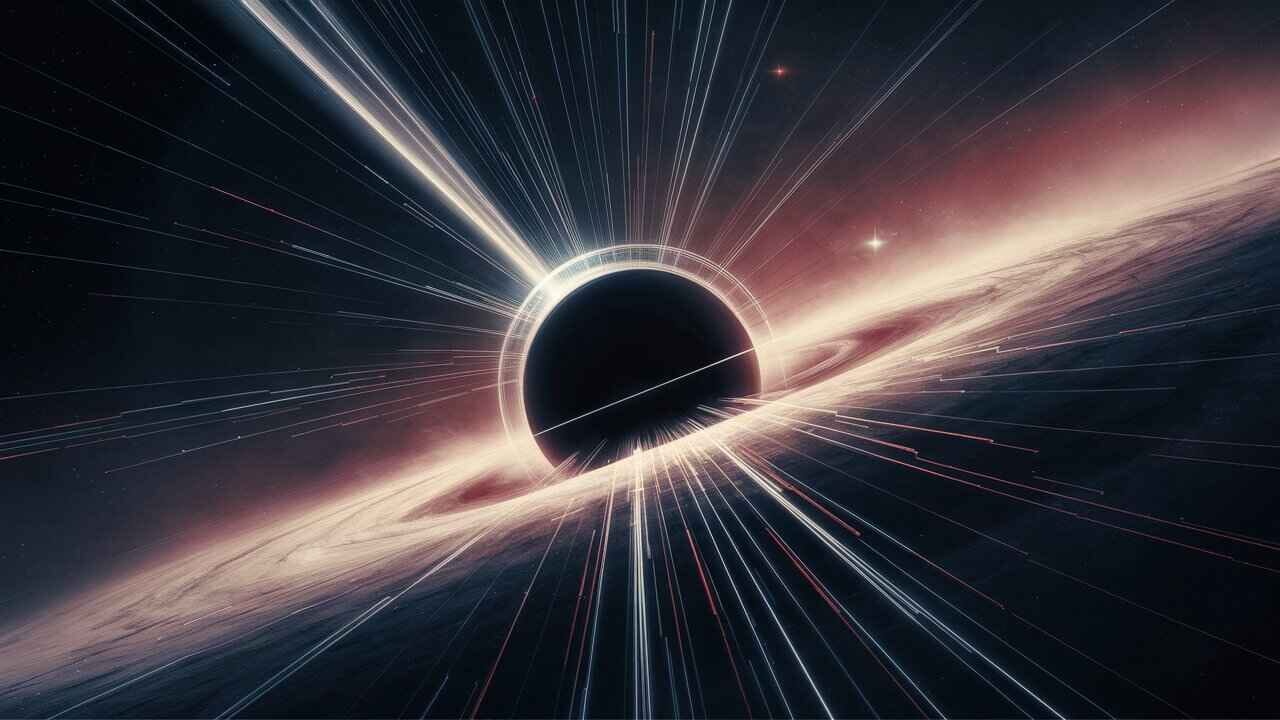
If you have ever wondered why black holes are black, then you will be interested in our upcoming online broadcast on Feb. 16. It’s not a cosmic coincidence. They have such a gravitational pull meaning nothing can break free, not even light. My mind pictures a cosmic vacuum cleaner that's so powerful it sucks up everything around it even the light, usually bounces off and gives objects their visibility. For this reason, black holes are dark and enigmatic, totally unlike their colorful world.
Black holes, we all know, are these regions where if an object falls in, it can't get out, but the puzzle that many struggled with over the decades is, what happens to the information that an object contains when it falls into a black hole. Is it simply lost?
-Brian Greene
The fate of the information falling under black holes is unknown. Some believe they are completely lost forever whereas some believe they are preserved sacredly. The reason for black holes being black lies underneath the mysteries. In this article, we deeply discuss why are black holes black.
Table of contents
- The immense gravitational pull
- The event horizon
- The absence of light emission
- Is dark and black the same thing?
- The infinite density
- The time dilation
The immense gravitational pull
Some things are dense, and some things are massive, but black holes are the densest, most massive things you can imagine. That’s why they look black.
Black holes are so intense because there is so much mass packed down into such a small space. All that this does is create a region of spacetime where gravity is so strong it overcomes even the electromagnetic force, which light itself is made from. As a result, this can lead to some weird and wonderful things, like gravitational lensing, where a black hole’s gravity bends the light from a distant object in a way that makes it look like it’s been somewhere else.
Still, black holes can be mysterious and dangerous sounding but they can also be fascinating and essential objects in the universe. But they matter in the formation and evolution of galaxies and could teach us something about gravity and spacetime.
The event horizon
The event horizon of a black hole is the boundary beyond which nothing, including light, can escape its powerful gravitational force. It can be thought of as the ultimate point of no return. When an object, such as a star or a planet, crosses this threshold, it is inevitably pulled toward the singularity, a point at the black hole’s center with infinite density. At the event horizon, the escape velocity surpasses the speed of light, making escape impossible for anything.

Absence of light emission
Space that is black in every sense is space containing black holes and regions from which light cannot escape. Black holes are unlike objects that you see if you reflect light on them. Black holes are invisible in the traditional sense, in that no light can get to our eyes, this absorption prevents any light from reaching our eyes. They show themselves through indirect means gravity exerted on nearby objects or radiation from matter falling into them.
Is dark and black the same thing?
Many people think that dark and black are the same thing. But the surprising fact is that it isn't.’ Dark’ is the absence of light and ‘Black’ is the absence of visible light or in other words the complete absorption of visible light. For example, in a dark room, everything is black, but in a bright room, the object that does not reflect visible light but rather absorbs it appears to be black. Similarly, black holes also absorb every ray of light it comes in contact with.
The infinite density
At the heart of a black hole lies a singularity, a point of infinite density. This means that an incredible amount of mass is compressed into an infinitely small space. It's like squeezing a star or an asteroid into a tiny!T his extreme density is a result of the immense gravitational forces at play. As matter falls into a black hole, it's squeezed and compressed to its ultimate limit. Since no light can escape from this immensely dense object, it appears black.
The time dilation
Einstein's theory of general relativity. e.e E=mc^2 explains how mass and energy warp the fabric of spacetime, creating gravity Time passes more slowly near a massive object compared to further away. This is because gravity affects the flow of time, slowing it down in regions of strong gravity. As an object approaches a black hole, the gravitational pull becomes stronger, and time slows down even faster. At the event horizon, the point of no return, time appears to stop completely from the perspective of a distant observer. Here, no light can escape because it would take an infinite amount of time to do so.
So summing up everything, black holes are black because of their nature of pulling everything towards themselves. Despite their dark and mysterious nature, black holes play a crucial role in the evolution of galaxies. Supermassive black holes, which can be millions or even billions of times more massive than our Sun, are thought to reside at the centers of most galaxies. These black holes can influence the formation and growth of galaxies, as well as the distribution of stars and gas within them.
FAQS
What is the true color of the black hole?
Answer: A black hole typically has no color because it doesn't reflect any light, making it appear completely dark. Its darkness represents the absence of any visible light because black holes' gravity traps all the radiation of electromagnetic fields. However, the region around the black hole, such as an acceleration disk can glow in different types of colors like blue, white, or red depending on the temperature of the matter spiraling into it. The true "color" of a black hole is simply the void of blackness.
Can a black hole hurt you?
Answer: A black hole definitely can hurt you if you get too close to it. Near a black hole, a force that would be almost like spaghettification in which your head and feet are under such intense gravitational pull that your body stretches out into some sort of long, long shape. Beyond that, assuming you were to enter its event horizon (that point of no return), you would be drawn toward the singularity, crushed by its tremendous density. A problem is how far away black holes are from Earth they pose no direct threat to us.
What is the closest black hole to Earth?
Answer: Gaia BH1 is a black hole in the constellation Ophiuchus, the closest known black hole to Earth, about 1,600 light years away. Previous to this, there was the V616 Monocerotis system of a binary star with a star similar to our Sun and a stellar-mass black hole, about 10 times the mass of our Sun, some 3,000 light years away, which was thought to be the closest black hole. Black holes are far enough that they present no threat to Earth.
